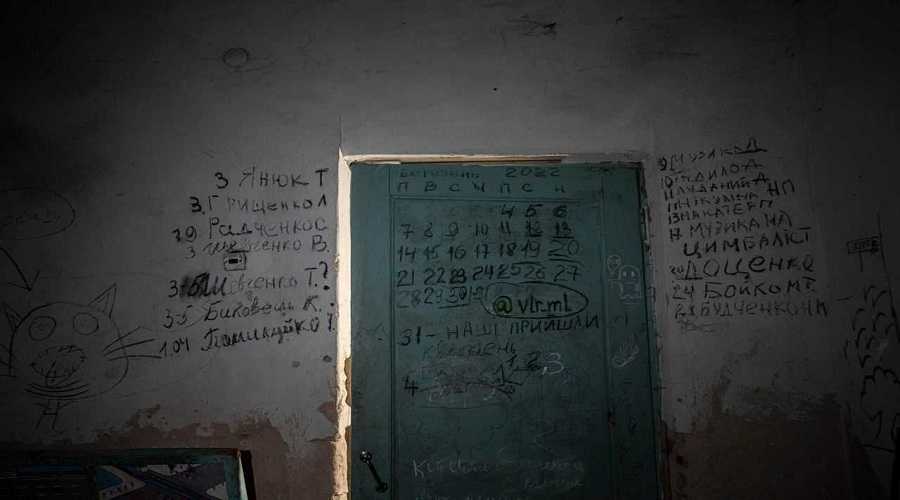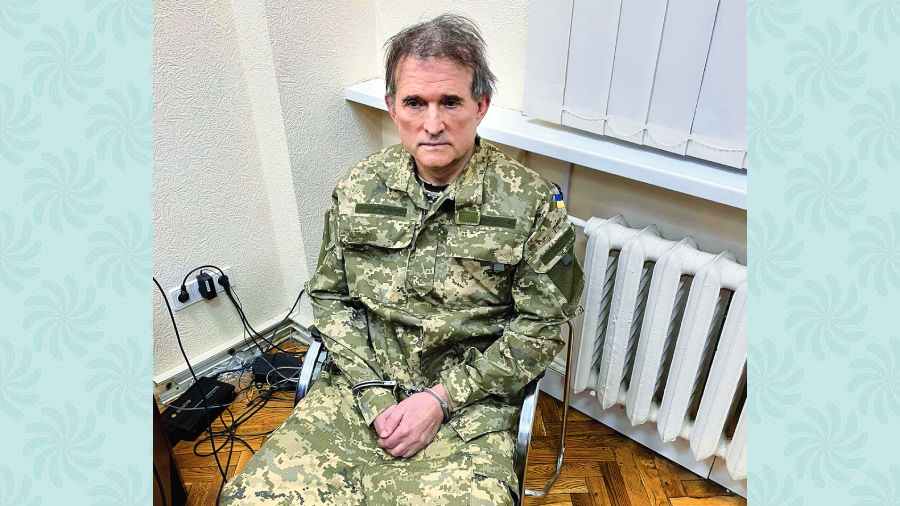The Russian soldiers forced more than 300 villagers into a school basement. Then, during weeks of stress and deprivation, some began to die.
Residents of Yahidne, a village 140km from Ukraine capital Kyiv, told The Associated Press about being ordered into the basement at gunpoint after the Russians took control of the area around the northern city of Chernihiv in early March.
In one room, those who survived wrote the names of the 18 who didn’t.
“An old man died near me and then his wife died next,” Valentyna Saroyan, a weary survivor, recalled on Tuesday as she toured the darkened basement. “Then a man died… lying there, then a woman sitting next to me. She was a heavy woman, and it was very difficult for her.”
Village by village, town by town, Ukrainians in areas from where Russians have withdrawn continue to unearth new horrors. More are feared.
The residents of Yahidne, on the outskirts of Chernihiv, said they were made to remain in the basement day and night except for the rare occasions when they were allowed outside to cook on open fires or to use the toilet.
The health of the captives suffered.
“Here’s a chair, and that’s how we were sitting for a month,” Saroyan said, recalling her aching legs.
As people died one by one in the basement, neighbours were allowed from time to time to place the bodies in a mass grave in a nearby cemetery.
Each time, they passed through a doorway marked in dripping red paint with the words: “Attention. Children.” The glare of a flashlight showed bright drawings on the walls.
The Russians could be cruel, surviving villages said. Svitlana Baguta said a Russian soldier who was “either drunk or high” made her drink from a flask at gunpoint. “He pointed the gun at the throat, put the flask and said, ‘Drink’,” Baguta said.
Julia Surypak said the soldiers allowed some people to make a short trip to their homes if they sang the Russian anthem. “But they didn’t allow us to walk much,” she said.
The forces left the village in the beginning of April, part of a regional withdrawal from northern Ukraine.












